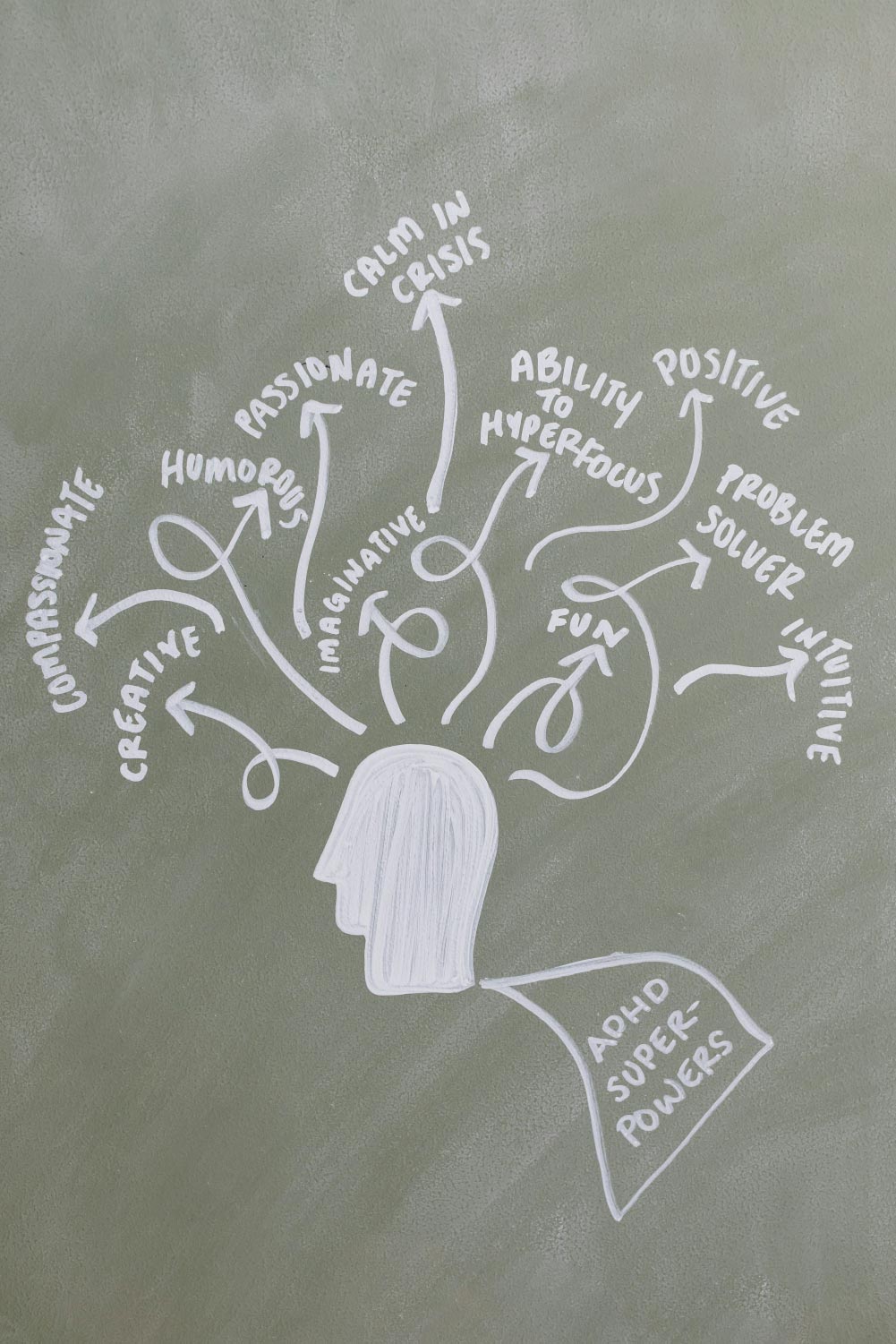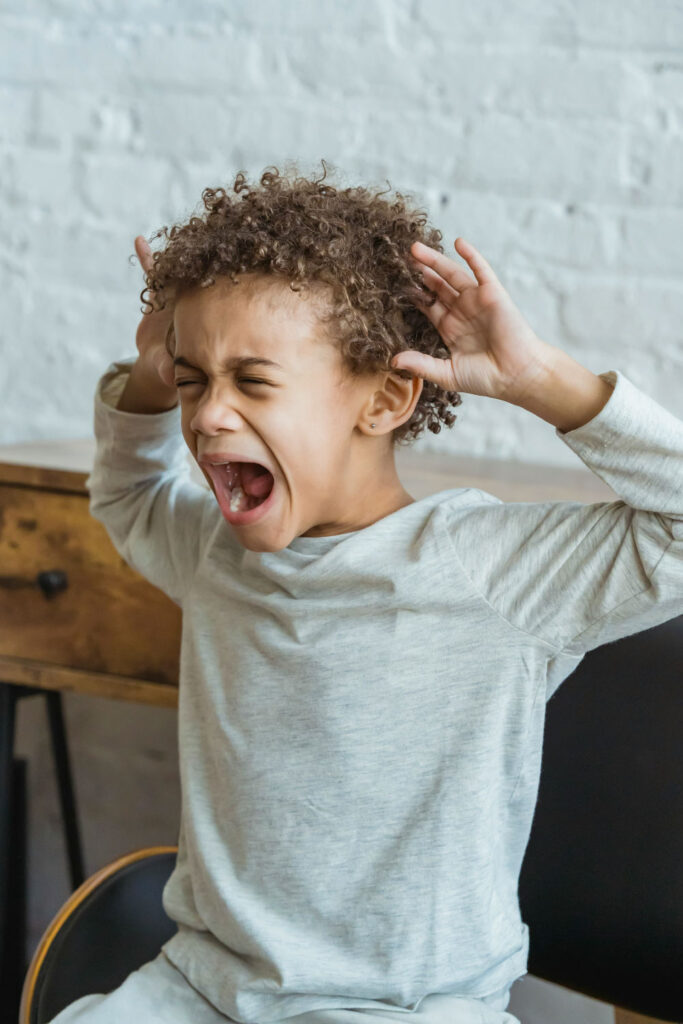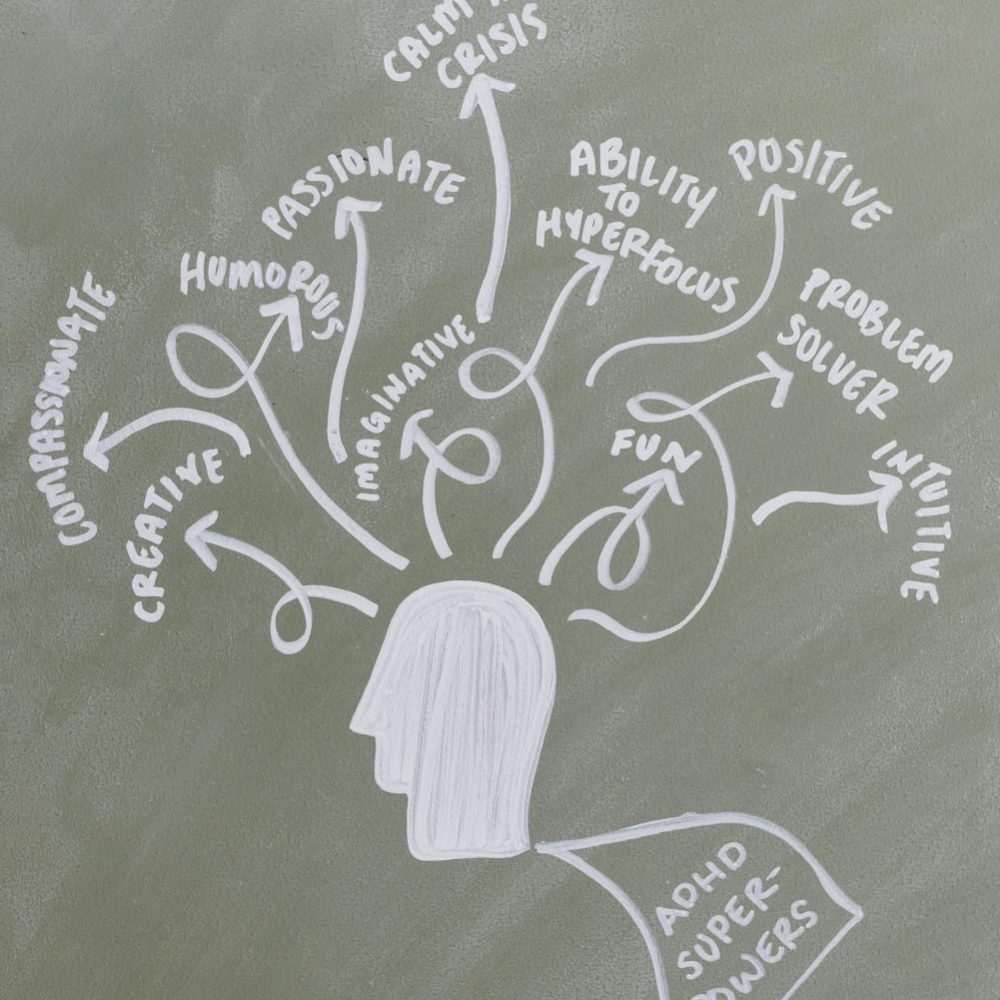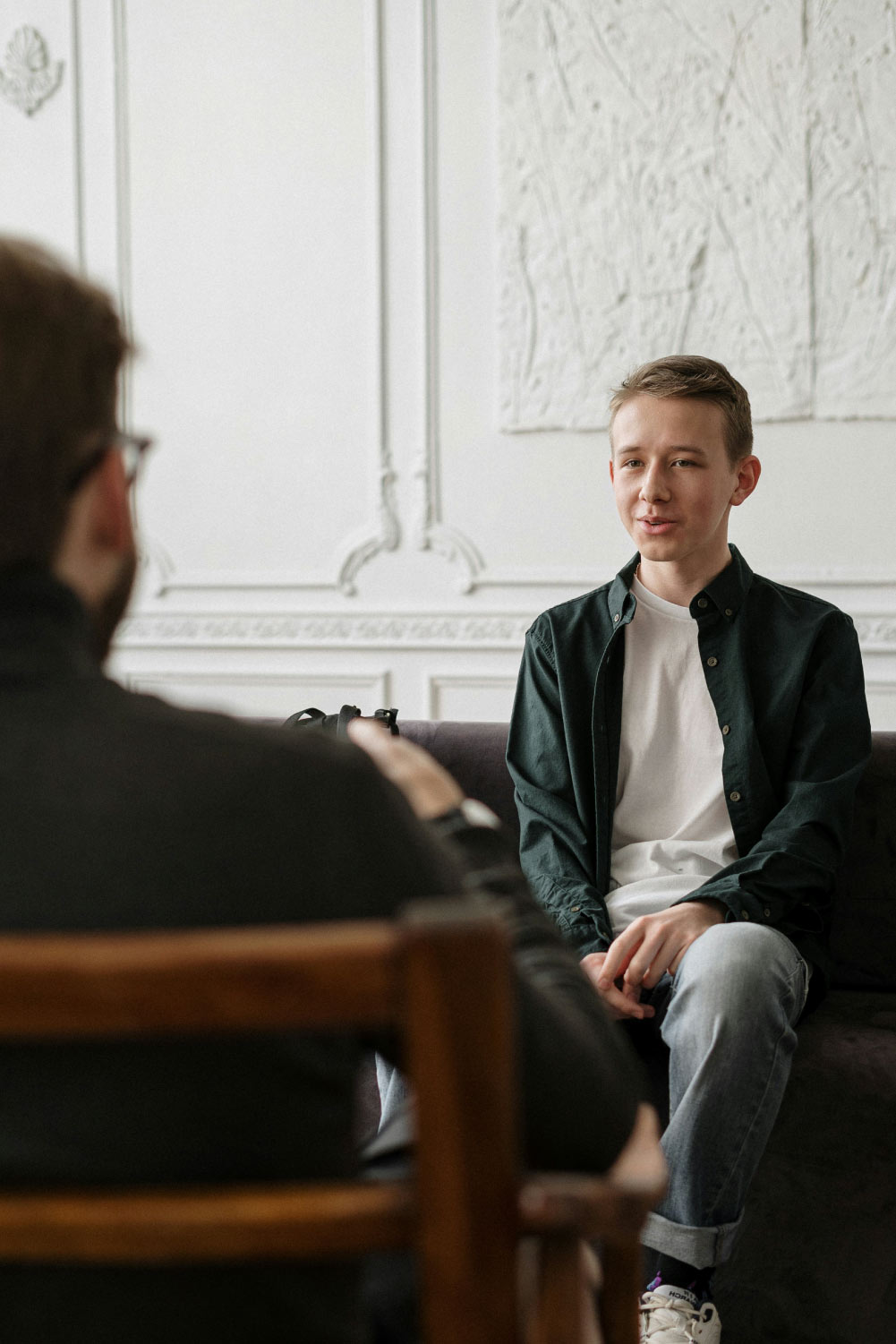New Jersey
ADHD Therapy
Attention-deficit/hyperactivity disorder (ADHD), as described by the National Institute of Mental Health, is a developmental disorder marked by persistent symptoms of inattention and/or hyperactivity and impulsivity that interferes with daily life. Modern ADHD Therapy first addresses the type and severity of symptoms, and then gives each individual a customized pathway to thrive in their environment with practical, non-medicated solutions to help manage symptoms. With the addition of family support, academic accommodations, and behavioral therapy, we’re helping those diagnosed with ADHD to feel more confident and comfortable with their neurodivergent mind, embracing a lifestyle that better supports their overall mental health and path toward a successful future.
Our Approach To
ADHD Therapy

The era of treating ADHD primarily with medication is over. As a practice that prioritizes brain health, we believe in supporting the neurodivergent mind as it is with achievable lifestyle and behavior modifications so every person with ADHD can achieve a sense of self-empowerment for a lifetime. Through a series of evaluations, observations, and standardized tests, our clinical team will pinpoint the presence and extent of symptoms, followed by a holistic therapy approach that includes cognitive behavioral therapy, lifestyle modifications, education, mindfulness techniques, community support, and of course, our “7 Foundations of Brain Health” program.


Diagnosing
ADHD

At Behaved Brain, we offer comprehensive ADHD testing for a range of symptoms that could inform an ADHD diagnosis, or may even suggest another behavioral challenge. To learn more about the variety of tests we offer, follow this link. In addition to that, we also offer school and home observations to better understand the child in their current setting and offer specific recommendations to help them thrive in their environment.
Once testing and observations are completed, we refer to the DSM-5 standard of diagnosis. The DSM-5 currently recognizes three subtypes of ADHD: Primarily Inattentive type (sometimes casually called ADD), Hyperactive-Impulsive type, and combined type.

To be diagnosed with Primarily Inattentive ADHD, the individual must display at least 6 of the following symptoms:
- Difficulty sustaining attention
- Often seeming to not be listening
- Failing to pay attention to details
- Difficulty organizing tasks and activities
- Frequently losing things
- Getting easily distracted
- Forgetfulness
- Avoiding tasks that required sustained mental effort
- Trouble following instructions
To be diagnosed with Hyperactive-Impulsive ADHD, the individual must display at least 6 of the following symptoms:
- Fidgeting hands and feet or squirming while seated
- Running or climbing inappropriately or feelings of restlessness
- Difficulty engaging in activities quietly
- Seeming to always be on the go
- Excessive talking
- Blurting out responses
- Problems taking turns
- An inability to stay seated
- Frequently interrupting others
Even when a child qualifies in the above categories, to be diagnosed with ADHD, their symptoms must also meet the following criteria:
- Be chronic or long-lasting
- Impair functioning
- Cause them to fall behind typical development for their age

Types of Treatment We Offer For
ADHD Therapy
Behavioral Therapy: With a focus on organization, behavior management for ADHD symptoms often includes therapist-led sessions on goal setting, creating routines, organization, time management and more executive functioning strategies to help improve physical behaviors.
Cognitive Behavioral Therapy: CBT is often utilized in ADHD Therapy to help individuals rewire their mind around their symptoms to improve their overall sense of self. This usually includes identifying and modifying thought patterns that lead to feelings of low self-esteem, procrastination, or an overall sense of failure. By helping individuals to shut out negative thought patterns, we help them focus on their strengths and capabilities.
Neurofeedback Therapy: We use real-time brain activity to train self-regulation of brain waves through our Neurofeedback Therapy sessions. An electronic device monitors and records brain activity while performing a task and provides an immediate feedback loop to signify how the brain is functioning. Through this feedback, the client learns to self-regulate their brain activity to directly alter the associated behavior. Through a series of sessions, individuals struggling with ADHD symptoms can change their brain activity when they observe a triggering event or symptom.
Social Skills Training: Those who suffer with ADHD symptoms, particularly of the Hyperactive-Impulsive variety, can have difficulty cooperating with others. Social skills training helps the individual to better manage collaborative skills in a peer-to-peer environment, including sharing, waiting turns, not speaking over one another, and being more mindful about completing tasks together.
Family Training & Education: We offer family and group therapy sessions to help parents and relatives to better understand the mind of their child who experiences ADHD symptoms. Doing so educates them on ways to best support the child and create a healthier environment for them to succeed and feel supported while limiting triggering events.
Education & Academic Accommodations: Our team works with schools to implement accommodations, such as extra time on tests or the use of organizational tools. We first do this through school observations to see how the child’s school environment can be reinforced to better meet their needs. Further recommendations may include Individualized Education Programs (IEPs) or 504 Plans under U.S. education law. With deep familiarity in this field, our team is uniquely qualified to observe and recommend changes that will positively impact your child’s education and trajectory.
Calming Techniques: Having a toolkit to calm the mind is one of the most practical and accessible ways we can help nurture the neurodivergent brain. Especially when it comes to ADHD, racing thoughts, distractions, impulsivity and so many other classical expressions can be subdued with techniques to redirect the mind when it wanders off. Our team teaches techniques such as breathing, meditation, tapping and a host of other strategies to counteract symptoms in real time.
Lifestyle Modifications: This is where our “7 Foundations of Brain Health” really plays an important role in ADHD Therapy. By focusing on 7 critical pillars of brain health: sleep, diet, exercise, calming techniques, screen time, emotional regulation and routine management, we are helping all of our clients take a mindful approach to brain health optimization that improves all symptoms. Especially when it comes to ADHD, a great deal of symptoms can be radically reduced or even eliminated with positive lifestyle changes, like getting good quality sleep, eliminating toxic foods, implementing a schedule, and so many other achievable lifestyle changes that we focus on at Behaved Brain.
Symptoms Of
ADHD

Stress, sleep disorders, anxiety, depression, and other physical conditions or illnesses can cause similar symptoms to those associated with ADHD. Therefore, a thorough evaluation is necessary to determine the cause of ADHD symptoms. However, if you see any of these consistent behaviors in your child, teen or family member, then having them evaluated through our ADHD testing is a good precautionary measure, since early detection is key in achieving optimal outcomes.

- Easily Distracted
- Difficulty following directions
- Difficulty staying on task
- Forgetfulness
- Losing or misplacing things
- Lack of attention to details
- Problems with organization
- Limited attention span
- Difficulty listening
Non-Medicated
ADHD Treatment

Our team of therapists and clinicians feel passionately about avoiding medication to treat ADHD symptoms and other behavioral challenges. Why? Because we know that if we want to sincerely treat the whole person and give them tools to last a lifetime, then we have to start them off with the best possible foundation to really understand their mind and body. The standard environment today for a child is ripe for inflaming ADHD symptoms. And it’s hardly helpful, or realistic, to offer a simple medication to help reverse all negative behaviors, especially when we know that’s not exactly what it does anyway.
That’s why we approach an ADHD diagnosis by first working through lifestyle changes and behavior modifications. Once we establish a healthy baseline, then we consider whether medication would further support the individual’s mental health and goals. Ultimately, ADHD is not a disease, but rather a diagnosis with a wide range of implications. It deserves to be managed individually based on the person’s unique expression of symptoms. This requires a specialized approach to overcoming symptoms and supporting oneself in ways that meet their unique needs while helping them feel supported and capable of reaching all of their goals.


frequently asked questions about
ADHD Therapy
Do you use medication to treat ADHD?
At Behaved Brain, we believe that medication for ADHD should only be recommended once a healthy baseline is achieved. This means we work with families to create an environment that limits ADHD triggers and implement behavior modifications first before we consider medication for ADHD symptoms.
What's the difference between ADD and ADHD?
Today, the term “ADD” has been replaced entirely with the term “ADHD” even when the individual does not have “hyperactivity” symptoms. This is why you may see “ADD” referenced less in modern periodicals. However, for all intents and purposes, “ADD” and “ADHD” differ in that symptoms linked to “hyperactivity” are expressed in the ADHD diagnosis. For more information about the differences between ADD and ADHD, refer to our explanation in the “Diagnosing ADHD” section of this page.
Can adults have ADHD?
Absolutely! There has been a recent surge in late-stage ADHD diagnosis in adults and the reason is simply because the symptoms have been more widely publicized. Many adults do have ADHD symptoms but have never realized it or been diagnosed with the condition. However, ADHD Therapy can help them better manage their symptoms and learn to live in harmony with their mind and body when it feels triggered. For adults who embrace ADHD Therapy, they are discovering a confidence and self-esteem boost that has been missing for most of their life. This is helping them more successfully navigate personal relationships and work endeavors which they may have previously struggled with.
Can you outgrow ADHD?
Evidence does suggest that as we age the symptoms of ADHD do tend to diminish. This is also why many people have been diagnosed later in life with ADHD, whose symptoms became less pronounced, but never truly went away altogether. We also know that environment has a tremendous impact on ADHD symptoms, so improving your environment can markedly reduce the degree to which symptoms are expressed.

Start Your ADHD Therapy Journey

Behaved Brain Wellness Center is currently accepting new in-person and virtual clients. If you’d like to call to schedule a session at either our Ho-Ho-Kus, NJ or Midland Park, NJ location, click here!







